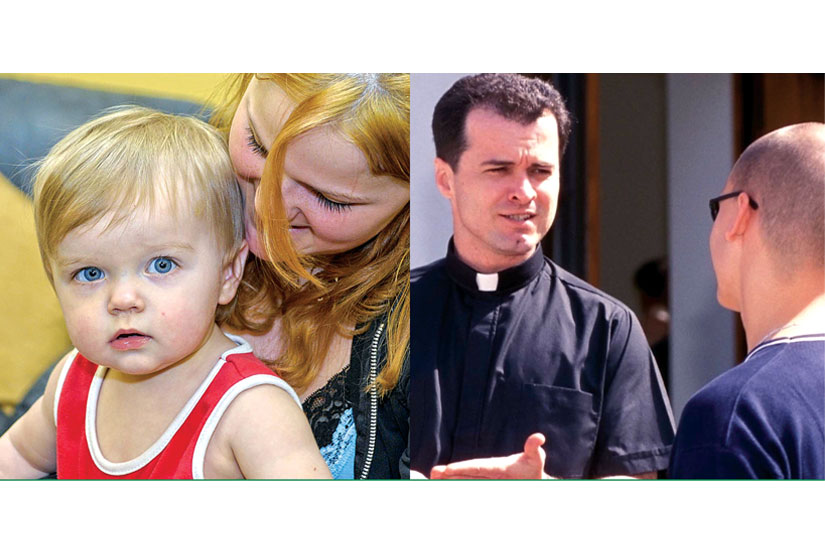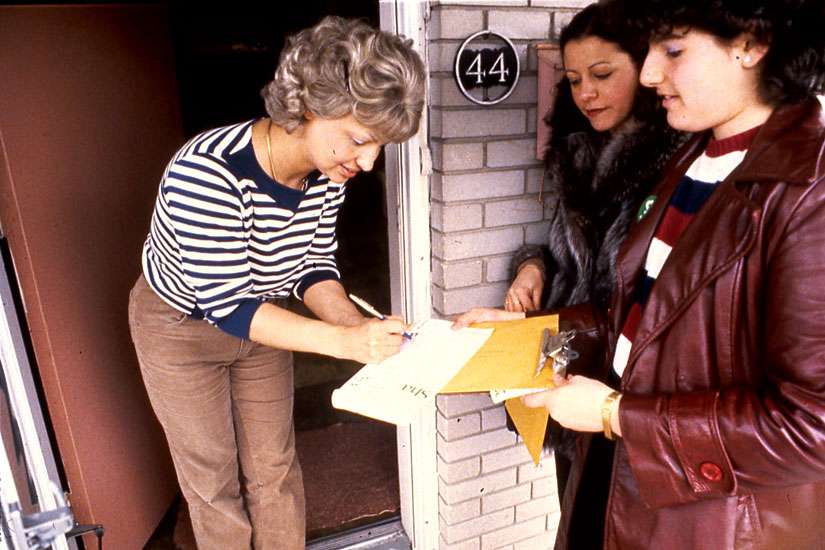Pocock pulled seven Catholic charities out of the United Community Fund that day because Planned Parenthood was admitted as a member agency, making the pro-abortion group eligible to receive $12,000 to $16,000 ($47,000 to $63,000 in today’s money) in United Way funding. The United Community Fund trustees had voted 25 to 3 in favour of Planned Parenthood, even though the Catholics had tried to head them off the previous fall.
The acceptance of Planned Parenthood was not going to get a quiet pass from Pocock or get an implicit endorsement from Catholic agencies. Instead, the archbishop put in motion a bold strategy that led to the birth of the ShareLife annual fundraising appeal.
When he announced his decision, Pocock assured Catholic charities that he would find the funds to sustain them. Understandably, many were nervous. But ShareLife exceeded its first-year goal and, as it celebrates its 40th anniversary, has expanded from originally funding eight Catholic agencies to today supporting 43 agencies that provide a broad range of essential services to more than 100,000 people annually.
The annual campaign raises more than $14 million by bringing together parishes, schools and businesses to provide comfort and support for people in need of all ages, backgrounds and circumstances in the Toronto area, and to help fund the formation of priests as well as overseas development aid through the Canadian Catholic Organization for Development and Peace.
ShareLife has come a very long way in the 40 years since Pocock called a press conference to announce his controversial decision to break away.
The Toronto Star editorial board called that decision “a blow.”
“The decision costs us something even more valuable than a truly United Way,” read The Star’s editorial that day. “It means that after many years of working together, groups holding different beliefs feel they must break apart, lessening the tolerance which Toronto has come to prize. That is the real tragedy of the Catholic Church’s decision to leave the United Way.”
“We are taking a stand on what we believe and hold to be true,” wrote Pocock in a message printed in The Star that day and in The Catholic Register the following Sunday.
“Our decision will be called divisive. I reject that charge,” wrote Pocock. “On the issue of abortion, Canadian society is already divided, as is our own community of Toronto. There is no middle ground. There can be no half-way measure. One is either for or against abortion.”
In part, the decision shocked Toronto because the growing and newly sophisticated city had come to think of its gentlemanly and amiable cigar-smoking archbishop as a force for progress and liberalism. Pocock was certainly a contrast to Cardinal James McGuigan.
 Archbishop Philip Pocock
Archbishop Philip Pocock
United Appeal president Barry Rose told The Catholic Register, “We would certainly seek any means of getting back together with Catholic Charities.”
In part the city establishment was right about Pocock. The archbishop who drove all kinds of efforts to modernize the Church from the new liturgy to ecumenism didn’t make a reactionary, conservative argument against abortion. He didn’t fulminate against the libertine sexual mores of young people these days. He saw modern abortion as violence cloaked in middle-class respectability.
“We have not aroused ourselves against a single social evil while ignoring all the rest,” Pocock wrote. “Our indignations and energies will continue to be directed against poverty, unemployment, exploitation, discrimination and every form of injustice and human misery both in our country and in the developing nations. But we can no longer respond to human need within a framework where human disservice has been sanctioned.”
Fr. Paul Lennon, who at the time worked with Msgr. Claude Mulvihill running Catholic Charities, remembers how the archbishop made the call himself. Some Catholic agency leaders tried to convince him it would be okay to just get along with Planned Parenthood. Catholics and Planned Parenthood co-existed within the framework of United Way appeals in 44 North American cities, including Vancouver and Kitchener-Waterloo. The Catholic agencies couldn’t imagine another way of funding their work.
“There was a catered lunch. Men came all dressed up and the women were in hat and gloves. I was quite amused by that,” Lennon told The Catholic Register. “They’d gotten a call to meet with the archbishop but didn’t know why. The archbishop was very affable. I remember he lit up a cigar after lunch. He asked them, ‘What’s the trouble here?’ He let them talk and have their say. He didn’t say anything. He just took it all in.
“It seemed like he accepted their explanation (for why United Way was giving funds to Planned Parenthood). He didn’t rebut anything. He just heard them out. They thought he accepted their explanation. Then, three or four days later, he came out with his announcement that he was cancelling the affiliation with the United Way.”
Lennon still stands by his archbishop’s decision.
“My memory is very good about that day. I laud Archbishop Pocock. It was a gutsy thing to do. He saw the direction things were going and figured he might as well get off the boat now,” said Lennon.
Nor did the Catholic community of Toronto pay the price they thought they might.
ShareLife launched its first campaign that fall. The goal was $1.9 million ($7.9 million in 2016 dollars). The actual collection was $2.1 million ($8.9 million).
By 1982 ShareLife was collecting $6 million ($14.6 million). Those were giddy times as the immigrant Catholic Church of Toronto elbowed into the city’s establishment. In another couple of years Pocock and his successor Cardinal Gerald Emmett Carter finally managed to convince Premier Bill Davis to fund Catholic schools right through Grade 13. But then in 1982 the first executive director of ShareLife, 47-year-old Paul Robinson, was taken down to the police station to answer questions about a missing $25,000 cheque. The man went to jail and Eleanor Parsons took over — yes, a woman in charge of raising the money to keep Catholic Charities afloat 34 years ago.
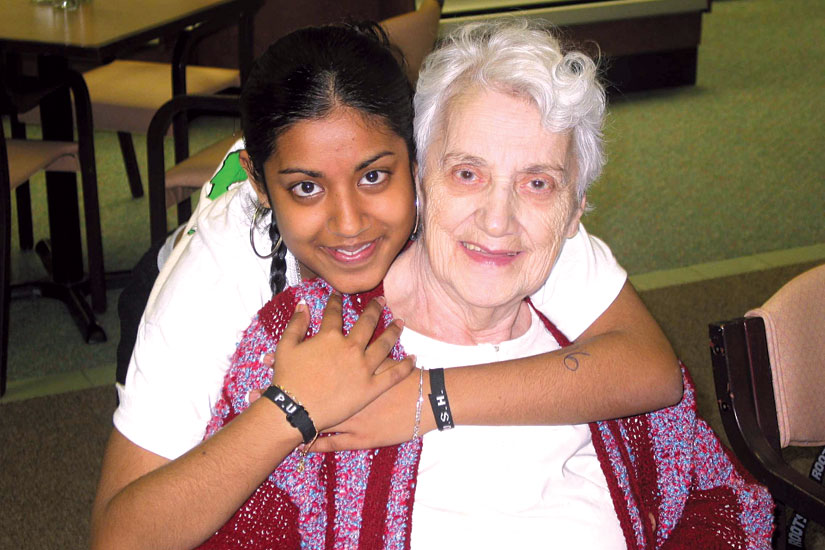
In those early days the ShareLife campaigns were almost a celebration of Catholic identity and rising Catholic power in Toronto. In 1977 the parishes marshalled 20,000 volunteer canvassers who went door to door asking for money.
In exiting the United Way, the Catholics had kissed goodbye to most of the corporate money the United Way could pull in with easy access to payroll deductions at large workplaces — deductions that were encouraged by both union and business leaders. Nor was ShareLife going to get a lot of big cheques directly from big businesses. Pictures of corporate big-wigs passing cheques to the United Way found their way into newspapers and raised the profile of a business. Not so for ShareLife, seen as the internal working of the Catholic Church.
But ShareLife made up for these limitations with parish power. Parishes collected money for ShareLife at book sales, bake sales, picnics and parties. Catholic schools also pitched in with money collected at dances, concerts and every other kind of drive.
ShareLife modernized over the years. In 1992 Cardinal Aloysius Ambrozic launched the first direct-mail appeal. But it was the community events and parish participation that really gave ShareLife its distinctive character. In 1996 ShareLife launched its first walk-a-thon and for 10 years auxiliary Bishop Nicola De Angelis, responsible for Toronto’s ethnic parishes, made sure every language and tradition was there walking through the city together, often wearing traditional clothing from their homelands — Hungarians next to Africans surrounded by Vietnamese.
But ShareLife’s job today is a lot harder. Society has changed over the last 40 years and fundraising has changed with it.
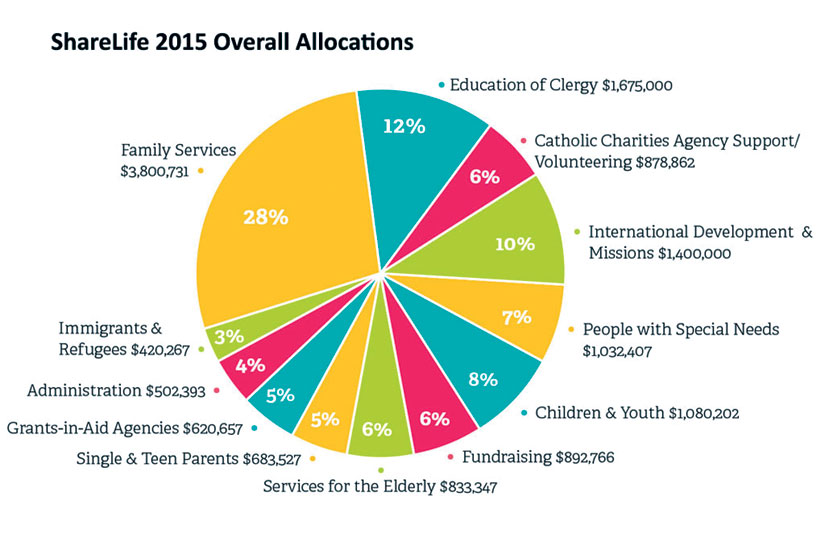
“Fundraising is a more sophisticated enterprise now,” said Bruce MacDonald, president and CEO of Imagine Canada, which provides support for charities and non-profitable organizations. “Canadians are bombarded by so many messages. I’m not just referring to fundraising appeals, but rather it’s e-mail, or Instagram, or what they see on television and hear on radio. Cutting through the clutter is far more difficult than it used to be.”
People are still generous. Eighty-four per cent of Canadians donate an average of $446 a year, according to Imagine Canada research. It comes to $10.6 billion annually. But on average each Canadian donor is supporting 3.8 different causes, and turning away many, many more.
“There are a lot of demands for dollars within society,” said Arthur Peters, ShareLife’s current executive director. “People are being generous, but there are many different places to put their dollars.”
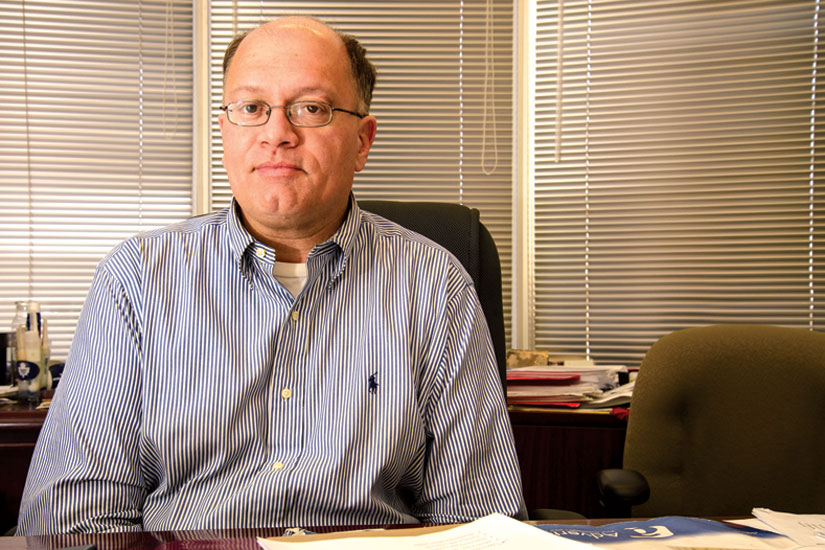 Arthur Peters
Arthur Peters
Far more of ShareLife’s time in 2016 is spent telling donors just where their money is going, how it is going to be used and assuring them none of it will be wasted.
“Our board is always committed to keeping the (fundraising) costs at the 10-per-cent level,” Peters said.
Getting through to donors with a message is only half the job, said MacDonald.
“It’s not enough just to reach them,” he said. “What you’re trying to do is inspire a behaviour or an action.”
ShareLife has modernized its operation in all the ways that other charities have. It has a web site. It takes electronic payments by debit card, credit card and other methods. It’s done its utmost to encourage gifts of equities and other assets, selling the tax advantages. It gets involved in estate planning for its donors.
But 2016 fundraising is like fundraising in 1976 in that it all comes down to somebody looking somebody else in the eye and asking for money, said MacDonald.
“The very best method is the tried and true,” he said. “Which is some form of personal interaction, some human contact, where you can relay information, answer questions, talk about the stories and the passions of the programs.”
The giddy, early days of a growing ShareLife appeal were also the days of an expanding middle class in Toronto, especially in the immigrant Church. But since the 1980s, the bottom 90 per cent of Toronto households have seen their income decrease by an average of six per cent.
Toronto today is “setting up two extreme lifestyles — one where people struggle just to get by and another where every option in the world is open to them,” said Professor David Hulchanski, a poverty researcher at the University of Toronto.
Hulchanski’s research shows that almost half of Toronto is now low-income. Another 21 per cent is high-income. Only 30 per cent is in the middle.
“The middle-income city is simply disappearing,” Hulchanski told the Toronto Star.
Among those who appear to be doing okay, rushing off to work each day and banking their salaries, many face daily uncertainty. A McMaster University study in 2013 found that only half the working adults in the Greater Toronto Area and Hamilton have full-time jobs with benefits and expect to be working for the same employer in one year’s time. Over the last 20 years there’s been a 50-per-cent increase in “precarious or insecure work,” according to the study.
Imagine asking for a long-term commitment of weekly or monthly giving in this environment.
Last year ShareLife raised more than 97 per cent of its $14.5 million goal, $12.5 million of it from parishes.
This isn’t the world of high-profile, high-status philanthropy — the super-rich showering their largess on the wretched of the city, or the high-toned parties attended by celebrities and politicians. It’s ordinary people giving what they have, giving till it hurts.
“Our parishioners have always been very generous,” said Peters.
Leon’s Furniture Ltd. president and CEO Terrence Leon is acting as a Catholic parishioner when he gives. He’s not looking to see his picture in the paper for giving to ShareLife.
“The satisfaction is in doing something that was a good thing to do,” said Leon. “It’s like, when you help someone out you feel good about helping someone out. Isn’t that a tenet of our faith? It doesn’t say, I will give you money if you tell the whole world I gave it to you. When you do the right thing you feel good about doing it.”
Peters doesn’t see himself as a salesman who has to pitch the cause.
“Our case for support is the agencies,” he said. “The appeal is a faith-based appeal. Ultimately, we’re asking people to support the work of the Church.”
Peters also knows he’s got a good job.
“When I read the agency stories, when I visit an agency, when I hear how somebody has been helped, that’s the best part of this job. That really is the best part,” he said.
